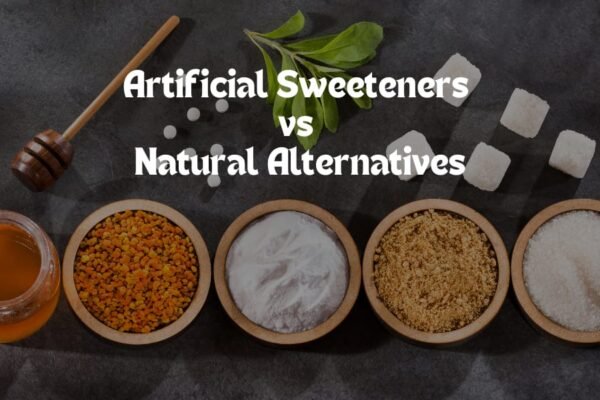Introduction
Depression is more than just feeling down or having a bad day. It’s a complex mental health condition that affects millions worldwide. Traditional Nutrition Exercise Depression Treatment often focuses on medication and therapy, but recent studies highlight the powerful role of nutrition and exercise in managing and even alleviating symptoms of depression. But how exactly do these factors interplay? Can a balanced diet and regular physical activity make a difference in mental health? Let’s dive into the intricate connection between what we eat, how we move, and how we feel.
Understanding Depression
What is Depression?
Depression is a mental health disorder characterized by persistent feelings of sadness, hopelessness, and a lack of interest in activities once enjoyed. It’s a fleeting emotion and a condition that can severely impact daily life.
Common Treatments for Depression
Typically, depression is treated with a combination of medications, such as antidepressants, and psychotherapy. While these treatments are effective for many, they are not without side effects and may not work for everyone. This has led researchers to explore alternative or complementary therapies, including lifestyle changes like diet and exercise.
The Role of Nutrition in Mental Health
How Diet Affects the Brain
The food we consume plays a crucial role in brain function. Nutrients from our diet contribute to the production of neurotransmitters, the brain chemicals that regulate mood and behavior. For instance, serotonin, often referred to as the “happy hormone,” is influenced by the amino acid tryptophan, which is found in various foods.
Key Nutrition Exercise Depression Treatment for Mental Health
- Omega-3 Fatty Acids: Found in fish, flaxseeds, and walnuts, these fats are vital for brain health and have been linked to reduced symptoms of depression.
- B Vitamins: Particularly B12 and folate, which are crucial for brain function and have been associated with a lower risk of depression.
- Vitamin D: Often referred to as the “sunshine vitamin,” low levels of Vitamin D have been linked to depression, making supplementation or exposure to sunlight important.
- Antioxidants: Found in fruits and vegetables, antioxidants help combat oxidative stress in the brain, which is linked to depression.
The Mediterranean Diet and Mental Health
The Mediterranean diet, rich in fruits, vegetables, whole grains, fish, and healthy fats, has been widely studied for its benefits on physical health. Recent studies also show its positive effects on mental health, including reducing the risk of depression. This diet provides a balanced intake of essential nutrients that support brain health, making it a potential ally in the fight against depression.
Exercise as a Natural Antidepressant
How Physical Activity Affects the Brain
Exercise has long been known for its physical health benefits, but its impact on mental health is equally profound. Physical activity increases the production of endorphins, often referred to as “feel-good” hormones. It also boosts serotonin levels, much like certain antidepressants.
Types of Exercise Beneficial for Mental Health
- Aerobic Exercise: Activities like running, swimming, and cycling increase heart rate and are effective in reducing symptoms of depression.
- Strength Training: Building muscle through weight lifting or resistance exercises can also improve mood and reduce anxiety.
- Mind-Body Exercises: Practices like yoga and tai chi combine physical activity with mindfulness, helping to reduce stress and promote mental well-being.
Exercise as a Complementary Treatment
Exercise is not just a preventive measure; it can also be used alongside traditional treatments to enhance their effectiveness. Regular physical activity has been shown to reduce the severity of depressive symptoms and improve overall quality of life for those with depression.
The Synergy Between Nutrition and Exercise
How Diet and Exercise Work Together
Nutrition and exercise are interconnected in ways that profoundly impact mental health. A healthy diet provides the fuel needed for physical activity, while exercise enhances the absorption and utilization of nutrients. Together, they create a feedback loop that supports both physical and mental well-being.
Creating a Balanced Routine for Mental Health
To maximize the mental health benefits, it’s important to adopt a routine that includes both a balanced diet and regular exercise. This doesn’t mean drastic changes; small, consistent steps can lead to significant improvements.
- Start with Small Dietary Changes: Incorporate more fruits, vegetables, and whole grains into your diet. Gradually reduce processed foods and sugars, which can negatively impact mood.
- Find an Exercise You Enjoy: Whether it’s a daily walk, a dance class, or a gym session, choose an activity you look forward to. Consistency is key.
- Stay Hydrated: Water is essential for brain function. Dehydration can lead to fatigue and irritability, which can exacerbate symptoms of depression.
The Importance of Consistency
Consistency is crucial in both diet and exercise. While the effects of a healthy lifestyle may not be immediate, over time, the benefits become more apparent. Regular physical activity and a nutrient-rich diet can help prevent the onset of depression and reduce its severity if it occurs.
Overcoming Barriers to a Healthy Lifestyle
Common Challenges and How to Address Them
- Lack of Motivation: Depression can drain energy and motivation, making it difficult to start and maintain healthy habits. Start small, and seek support from friends, family, or a mental health professional.
- Time Constraints: Busy schedules can make it hard to prioritize diet and exercise. Plan meals ahead of time and find short, effective workouts that fit into your day.
- Financial Limitations: Eating healthy and exercising don’t have to be expensive. Focus on affordable nutrient-dense foods and free or low-cost physical activities like walking or home workouts.
The Future of Depression Treatment
Personalized Approaches
As research continues, there is a growing emphasis on personalized approaches to depression treatment. This includes tailoring diet and exercise recommendations to individual needs and preferences, which could enhance the effectiveness of these interventions.
The Role of Technology
Technology is playing an increasingly important role in mental health treatment. Apps and online platforms can provide personalized nutrition and exercise plans, track progress, and offer support, making it easier for individuals to incorporate these healthy habits into their lives.
Integrating Nutrition and Exercise into Traditional Treatments
There is a growing recognition that traditional treatments for depression should be complemented by lifestyle changes. Integrating nutrition and exercise into a comprehensive treatment plan offers a more holistic approach to managing depression.
Conclusion
Depression is a multifaceted condition that requires a comprehensive approach to treatment. While medication and therapy remain essential, incorporating nutrition and exercise into treatment plans offers a promising avenue for improving mental health. By focusing on what we eat and how we move, we can take significant steps toward not only managing depression but also enhancing our overall well-being.
Read More: How a Cancer Diagnosis Can Be a Catalyst for Radical Living
FAQs
1. Can diet alone cure depression?
Diet alone is not a cure for depression, but it can play a significant role in managing symptoms. A balanced diet, rich in essential nutrients, supports brain health and complements traditional treatments like medication and therapy.
2. How much exercise is needed to see mental health benefits?
Even moderate levels of exercise, such as 30 minutes of walking most days of the week, can have a positive impact on mental health. The key is consistency rather than intensity.
3. Are there specific foods that can help reduce depression symptoms?
Foods rich in omega-3 fatty acids, B vitamins, and antioxidants are particularly beneficial for mental health. These include fatty fish, leafy greens, nuts, and berries.
4. Is the Mediterranean diet the best diet for mental health?
The Mediterranean diet is one of the most well-researched diets in terms of mental health benefits. Its emphasis on whole foods, healthy fats, and nutrient-dense options makes it an excellent choice for supporting mental well-being.
5. Can technology really help in managing depression?
Yes, technology, including apps and online platforms, can provide valuable tools for managing depression. They offer personalized plans, track progress, and provide support, making it easier to adopt and maintain healthy habits.











Hi i think that i saw you visited my web site thus i came to Return the favore Im attempting to find things to enhance my siteI suppose its ok to use a few of your ideas.
Hi, I’m Jack. Your website has become my go-to destination for expert advice and knowledge. Keep up the fantastic work!